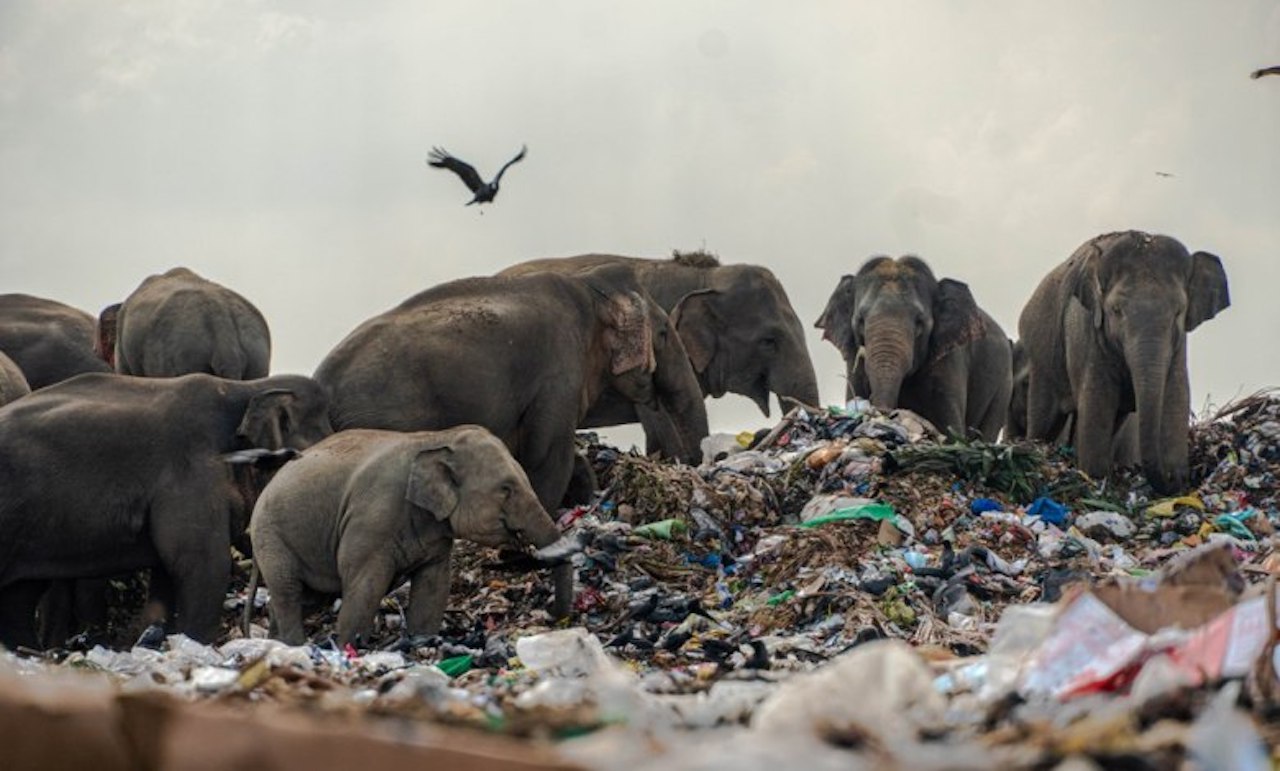

Image: Tharmaplan Tilaxan
The highly endangered yet social Asian elephant resides in matriarch-led groups. Besides food found in the wild, such as grass, bark, roots, and leaves of trees, jumbos also enjoy food cultivated by humans like bananas and rice. Sadly, they are also consuming dangerous substances sprayed on these crops as a recent study reveals based on Uttarakhand’s collected elephant dung samples. According to the latest study printed in the Journal for Nature Conservation, a team of researchers has found endangered Asian elephants ingesting human trash, including plastic, glass, and wires.
The study titled “Plastic ingestion in Asian elephants in the forested landscapes of Uttarakhand, India, mentions that scientists collected elephant dung samples from in and around the forested regions in Uttarakhand, India. Out of 75 dung samples, 24 contained human garbage, plastic packaging, and more.
Image: Mongabay
According to the study, each human-derived item has been measured, identified, and sub-categorized into plastic, as well as other anthropogenic waste. The elephants in the region are known to disperse seeds via their dung, however, due to the food supply being contaminated with plastic, they are now transporting pollutants into the wild areas. This not only puts their health at risk but also the health of other forest inhabitants.
The lead author of the study, Dr. Gitanjali Katlam found elephants ingesting garbage through trail cameras in Uttarakhand while working on her Ph.D. She and her colleagues and ecological research nonprofit the Nature Science Initiative even collected elephant dung samples for testing.
Plastic was found in all the dung samples near the dumps and even in forest areas near Kotdwar, which is situated close to Jim Corbett National Park. 85 percent of the materials found in elephant dung consist of food containers, plastic utensils, plastic bags, and plastic packaging.
Image: Eco Watch
With plastic ingestion, elephants are exposed to harmful chemicals such as bisphenol A, phthalates, and polystyrene. These chemicals may pose a danger to the digestive systems of elephants and other animals. To stop this, Katlam points out that the waste management department of the Indian government must take action to ensure that animals don’t eat garbage near forest areas.
We understand how plastic overuse is impacting the environment and the animals living in it. So, it’s our responsibility to carefully address the issue before our mess starts creating problems for co-existing animals as well.
Via: Mongabay
